Discover Explaining Ukraine
Explaining Ukraine

Explaining Ukraine
Author: UkraineWorld
Subscribed: 578Played: 34,487Subscribe
Share
© All rights reserved
Description
A podcast by UkraineWorld.org, a multimedia project about Ukraine run by Internews Ukraine. Explaining Ukraine, its politics, society and its culture. Support us: patreon.com/ukraineworld
408 Episodes
Reverse
During this record-breaking cold winter, millions of Ukrainians are regularly left without electricity, water, or heat as temperatures plummet to -20°C and below. Does Russia intend to make life in Ukraine unlivable? Can the country’s civilian infrastructure continue to withstand such a massive, relentless assault? And what are the alternatives for the future?
***
Explaining Ukraine is a podcast by UkraineWorld, an English-language media outlet covering Ukraine.
Host: Volodymyr Yermolenko—Ukrainian philosopher, editor-in-chief of UkraineWorld, and president of PEN Ukraine.
Guest: Oksana Ishchuk, an analyst specializing in international and energy relations at the Centre for Global Studies "Strategy XXI," a prominent Ukrainian think tank.
***
Listen on various platforms: https://li.sten.to/explaining-ukraine
UkraineWorld: https://ukraineworld.org/en
***
SUPPORT:
You can support our work on https://www.patreon.com/c/ukraineworld
Your help is crucial, as we rely heavily on crowdfunding.
You can also contribute to our volunteer missions to frontline areas in Ukraine, where we deliver aid to both soldiers and civilians.
Donations are welcome via PayPal at: ukraine.resisting@gmail.com.
***
CONTENTS:
02:05 — The real goal behind Russian energy strikes on Ukraine
05:10 — Is a "total blackout" in Ukraine possible?
09:00 — A Soviet-built system: pros and cons
12:20 — Why Ukrainian cities go dark all at once
14:40 — Why every citizen must prepare for the next winter now
16:40 — The reason Russia succeeded only this winter
18:30 — Fragmenting the grid: Russia’s new energy tactics
19:55 — Why can’t Ukraine defend every power plant?
22:30 — The terrifying reality of Russia’s "indirect" nuclear terrorism
27:40 — Rebuilding the grid for a long war
32:10 — Why sanctions policy should be improved
34:30 — How Russia bypasses sanctions via the Baltic Sea
36:40 — The kind of Ukraine’s resilience Europe tries to understand
What are the prospects for peace talks — and why are many Ukrainians skeptical about them? Does Ukraine have technological parity with Russia on the battlefield? And how has Ukrainian civil society become one of the country’s greatest assets during the war?
***
Host: Volodymyr Yermolenko, a Ukrainian philosopher, editor-in-chief of UkraineWorld, and president of PEN Ukraine.
Guest: Volodymyr Havrylov, retired major general of Ukraine’s Armed Forces, former deputy defense minister, and former Ukrainian defense attaché to the United States.
***
Explaining Ukraine is produced by UkraineWorld and brought to you by Internews Ukraine. This episode is created with support from Politeia, a Ukrainian NGO.
Listen on various platforms: https://li.sten.to/explaining-ukraine
UkraineWorld: https://ukraineworld.org/en
***
SUPPORT:
You can support our work on https://www.patreon.com/c/ukraineworld
Your help is crucial, as we rely heavily on crowdfunding.
You can also contribute to our volunteer missions to frontline areas in Ukraine, where we deliver aid to both soldiers and civilians.
Donations are welcome via PayPal at: ukraine.resisting@gmail.com.
***
CONTENTS:
00:00 - Intro.
01:26 - On peace negotiations.
08:31 - Who is winning the technological war?
15:30 - Key challenges of Ukrainian military technological progress
18:59 - Why we need integration of European and Ukrainian military production
24:19 - What’s next in war tech?
30:05 - Is Ukraine digitizing its defense?
33:38 - Can reliance on Chinese components become a risk?
38:44 - What to expect from Russia in the coming years?
47:53 - Where should we look for hope?
51:00 - Outro.
51:35 - Support us: patreon.com/ukraineworld
What can the deep past of Ukrainian lands reveal about the global story of humanity? Six thousand years ago, "mega-sites" flourished in what is now central Ukraine—but can these be considered the world’s first cities? How were they organized without central authorities, and how do they challenge everything we thought we knew about early social life?
***
This is Thinking in Dark Times, a podcast by UkraineWorld, an English-language multimedia project about Ukraine.
Host: Volodymyr Yermolenko, a Ukrainian philosopher, editor-in-chief of UkraineWorld, and president of PEN Ukraine.
Guest: David Wengrow, a renowned British archaeologist and Professor of Comparative Archaeology at University College London. He is the co-author, alongside David Graeber, of the international bestseller "The Dawn of Everything: A New History of Humanity".
***
Thinking in Dark Times is produced by UkraineWorld and brought to you by Internews Ukraine. It is supported by the International Renaissance Foundation and Politeia, a Ukrainian NGO.
***
SUPPORT:
You can support our work on https://www.patreon.com/c/ukraineworld
Your help is crucial, as we rely heavily on crowdfunding.
You can also contribute to our volunteer missions to frontline areas in Ukraine, where we deliver aid to both soldiers and civilians.
Donations are welcome via PayPal at: ukraine.resisting@gmail.com.
***
CONTENTS:
00:00 - Intro. What can the deep past of Ukraine reveal about the global story of humanity?
00:14 - Were the world’s first cities actually built in what is now Ukraine?
02:51 - Why does the Ukrainian soil play a key role in rethinking the origins of cities and states?
03:55 - Why are standard narratives of human history fundamentally wrong?
09:15 - What were the Cucuteni-Trypillia megasites?
17:23 - Why does the existence of egalitarian cities overturn political history itself?
20:35 - What does a circular city say about how people imagined the world?
21:27 - How did thousands of people govern themselves without rulers?
26:36 - Did democracy exist thousands of years before ancient Greece?
28:29 - Were Hobbes and Rousseau both wrong about human nature?
42:29 - Is Ukrainian history shaped by a tension between freedom and vulnerability?
47:22 - What do burning rituals reveal about cyclical views of life and nature?
50:51 - Why does Ukraine’s past matter for the future of humanity?
In 2025, Ukraine is facing unprecedented pressure from one of its key partners, the United States. The Trump administration has chosen not to act as Ukraine’s ally, but rather as a mediator between Ukraine and Europe on the one hand, and Russia on the other.
This shift has fundamentally changed the geopolitical framework of Russia’s war against Ukraine. Around the world, the language of victory has largely been replaced by the language of peace. Yet under current conditions, “peace” often implies that Ukraine will not regain its occupied territories—and such a peace may, in fact, amount to Ukraine’s defeat.
In this episode, we explain why this is a dangerous path. We also look back at 2025 and summarize its key developments
***
Host: Volodymyr Yermolenko, a Ukrainian philosopher, editor-in-chief of UkraineWorld, and president of PEN Ukraine.
Guest: Tetyana Ogarkova, a Ukrainian journalist and public intellectual, the head of the international department at the Ukraine Crisis Media Centre, and author of the podcast “L’Ukraine face a la guerre”, “Ukraine facing the war”, in French.
***
Explaining Ukraine is a podcast by UkraineWorld, an English-language media platform about Ukraine, run by Internews Ukraine.
Listen on various platforms: https://li.sten.to/explaining-ukraine
UkraineWorld: https://ukraineworld.org/en
***
SUPPORT:
You can support our work on https://www.patreon.com/c/ukraineworld
Your help is crucial, as we rely heavily on crowdfunding.
You can also contribute to our volunteer missions to frontline areas in Ukraine, where we deliver aid to both soldiers and civilians.
Donations are welcome via PayPal at: ukraine.resisting@gmail.com.
***
CONTENTS:
00:00 - Introduction
01:46 - US's shift from ally to mediator in Russia-Ukraine war. The impact of the Trump administration's approach to military aid.
06:13 - Trump and Putin's similar world vision regarding spheres of influence.
07:03 - Key elements of proposed peace plans: territorial concessions, security guarantees, and military withdrawal.
08:38 - Ukraine's public opinion against territorial concessions.
13:55 - The "fog" of peace negotiations occurring amidst ongoing total war and Russia's strategy of buying time.
17:33 - Legal and moral challenges of territorial concessions and skepticism about the legitimacy of peace plan negotiators.
20:48 - The escalation of the war, increased civilian suffering due to infrastructure bombardments, and Ukraine's strategy to target the Russian economy.
25:01 - Ukraine's dilemma in peace talks and Russia's strategy of worsening conditions over time.
29:04 - Donald Trump's political weaknesses and Zelenskyy's strategy
30:57 - The security situation on the front line: the rise of drone warfare, its increasing danger to civilians, and the expanding "kill zone."
39:07 - Ukrainian internal politics: the war against corruption, the role of civil society, and Zelenskyy's responsiveness to public opinion.
46:45 - Concluding remarks and a call for support for UkraineWorld.
Imagine an NGO that has raised over one billion dollars to support the Ukrainian army. Imagine a civil society initiative that purchases armaments and military equipment. Imagine a transparent organisation with an independent board and detailed reporting. This NGO exists — it is called “Povernys Zhyvym”, or “Come Back Alive”. It is one of the largest Ukrainian civil society foundations supporting Ukraine’s defense.
In this episode, we will speak about its work — and about the ways you can help Ukraine.
***
Explaining Ukraine is a podcast by UkraineWorld, an English-language media platform about Ukraine, run by Internews Ukraine.
Listen on various platforms: https://li.sten.to/explaining-ukraine
UkraineWorld: https://ukraineworld.org/en
***
Host: Volodymyr Yermolenko, a Ukrainian philosopher, editor-in-chief of UkraineWorld, and president of PEN Ukraine.
Guest: Kateryna Leshchyshyn, head of the international partnerships at the Come Back Alive foundation.
***
SUPPORT:
You can support our work on https://www.patreon.com/c/ukraineworld
Your help is crucial, as we rely heavily on crowdfunding.
You can also contribute to our volunteer missions to frontline areas in Ukraine, where we deliver aid to both soldiers and civilians.
Donations are welcome via PayPal at: ukraine.resisting@gmail.com.
***
The podcast episode is produced by UkraineWorld with the support of the Askold and Dir Fund as a part of the Strong Civil Society of Ukraine - a Driver towards Reforms and Democracy project, implemented by ISAR Ednannia, funded by Norway and Sweden. The contents of this publication are the sole responsibility of UkraineWorld and can in no way be taken to reflect the views the Government of Norway, the Government of Sweden and ISAR
***
CONTENTS:
00:00 What is Come Back Alive (Povernys Zhyvym)?
02:09 Come Back Alive`s Role: at the crossroads of the military, defence industry, and charity
04:33 Why does Ukraine need charity foundations to win?
07:49 Povernys Zhyvym buys a lot of things: from arms and vehicles to drones and chairs
09:58 Come Back Alive tests and develops new solutions
13:27 Working with foreigners: Challenges and successful stories
16:09 Why foreigners are reluctant to fund military equipment
19:34 Reality of the Ukrainian army: 80-90% of soldiers are former civilians
22:07 Who are the main donors of Come Back Alive?
29:38 Ways to support Ukraine: Spreading information, demonstrations, literature
37:37 Why donors should choose Come Back Alive
Ukraine has its own tradition of geopolitical thinking — a tradition that reaches deep into the past and continues to shape the country’s strategic imagination today. What are its key traits? Why was it developed more by writers than by statesmen? And how does it relate to Ukraine’s current reflection on its identity?
***
Explaining Ukraine is a podcast by UkraineWorld, an English-language media platform about Ukraine, run by Internews Ukraine.
Listen on various platforms: https://li.sten.to/explaining-ukraine
UkraineWorld: https://ukraineworld.org/en
***
Host: Volodymyr Yermolenko, a Ukrainian philosopher, editor-in-chief of UkraineWorld, and president of PEN Ukraine.
Guest: Danylo Lubkivsky, a Ukrainian diplomat and thinker, deputy foreign minister in 2014, and currently director of the Kyiv Security Forum.
***
SUPPORT:
You can support our work on https://www.patreon.com/c/ukraineworld
Your help is crucial, as we rely heavily on crowdfunding.
You can also contribute to our volunteer missions to frontline areas in Ukraine, where we deliver aid to both soldiers and civilians.
Donations are welcome via PayPal at: ukraine.resisting@gmail.com.
What makes the Ukrainian Greek Catholic Church so unique? Why is it such a remarkable attempt to bridge the divide between Eastern and Western Christianity? How can its history help us better understand the history of Europe and of the Christian religion? How has it shaped Ukrainian national identity? And how did it survive the Soviet era, when the authorities sought to eradicate it?
***
Explaining Ukraine is a podcast by UkraineWorld, an English-language media platform about Ukraine, run by Internews Ukraine.
Listen on various platforms: https://li.sten.to/explaining-ukraine
UkraineWorld: https://ukraineworld.org/en
***
Host: Volodymyr Yermolenko, a Ukrainian philosopher, editor-in-chief of UkraineWorld, and president of PEN Ukraine.
Guest: Natalia Shlikhta, a well-known Ukrainian historian and professor at the Kyiv-Mohyla Academy.
***
SUPPORT:
You can support our work on https://www.patreon.com/c/ukraineworld
Your help is crucial, as we rely heavily on crowdfunding.
You can also contribute to our volunteer missions to frontline areas in Ukraine, where we deliver aid to both soldiers and civilians.
Donations are welcome via PayPal at: ukraine.resisting@gmail.com.
***
This episode is made in partnership with Kyiv-Mohyla Academy and under the framework of the project “HER-UKR: Challenges and opportunities for EU heritage diplomacy in Ukraine”, co-funded by the EU within the ERASMUS+ Jean Monnet Policy Debate action.
Ukrainian cultural heritage is not something that quietly settles into national archives. In reality, it is the result of a dramatic struggle against destruction and oblivion. This makes this heritage so magnetic—precisely because it is not always visible or accessible, yet can be reconstructed like a lost mosaic.
In this episode, we talk about what the Ukrainian cultural heritage is, and how we can understand it. And also about the role of cultural institutions during Russia’s genocidal war against Ukraine.
***
Guest: Olesia Ostrovska-Liuta, a prominent Ukrainian public intellectual and art manager, director of the Art Arsenal (Mystetskyi Arsenal), one of Ukraine’s major cultural institutions. Olesia regularly appears on lists of the most influential figures in the Ukrainian cultural sphere compiled by various media and rankings.
Host: Tetyana Ogarkova, a Ukrainian literary scholar at the Kyiv-Mohyla Academy and the head of the international department at Ukraine Crisis Media Centre. She also runs the French-language podcast L’Ukraine face à la guerre.
***
Explaining Ukraine is a podcast by UkraineWorld, an English-language media platform about Ukraine, run by Internews Ukraine.
Listen on various platforms: https://li.sten.to/explaining-ukraine
UkraineWorld: https://ukraineworld.org/en
***
SUPPORT:
You can support our work on https://www.patreon.com/c/ukraineworld
Your help is crucial, as we rely heavily on crowdfunding.
You can also contribute to our volunteer missions to frontline areas in Ukraine, where we deliver aid to both soldiers and civilians.
Donations are welcome via PayPal at: ukraine.resisting@gmail.com.
***
This episode is made in partnership with Kyiv-Mohyla Academy and under the framework of the project “HER-UKR: Challenges and opportunities for EU heritage diplomacy in Ukraine”, co-funded by the EU within the ERASMUS+ Jean Monnet Policy Debate action.
Russian propaganda claims that Ukraine is not a separate nation, but merely a “preliminary form” of Russia. Today’s Kremlin ideology seeks to annex Ukrainian history in order to justify its territorial aggression. But this myth has a birth certificate. It emerged in the 19th century, when the Russian Empire started inventing its “ancient” medieval roots. Before that, Russian travellers in Ukrainian lands showed little interest in such historical questions.
In this episode, we trace the genealogy of the myth that Kyiv is a “Russian city” and that its history somehow belongs to Muscovy.
***
Explaining Ukraine is a podcast by UkraineWorld, an English-language media platform about Ukraine, run by Internews Ukraine.
Host: Volodymyr Yermolenko, a Ukrainian philosopher, editor-in-chief of UkraineWorld, and president of PEN Ukraine.
Listen on various platforms: https://li.sten.to/explaining-ukraine
UkraineWorld: https://ukraineworld.org/en
***
Guest: Kateryna Dysa, a Ukrainian historian and Associate Professor at Kyiv-Mohyla Academy. She has been a visiting fellow at Harvard, Stanford, Paris, and Oxford, and a visiting professor at the University of Basel. Currently, she is researching how the image of Kyiv was constructed in travel literature from the late eighteenth to early twentieth centuries.
***
SUPPORT:
You can support our work on https://www.patreon.com/c/ukraineworld
Your help is crucial, as we rely heavily on crowdfunding.
You can also contribute to our volunteer missions to frontline areas in Ukraine, where we deliver aid to both soldiers and civilians.
Donations are welcome via PayPal at: ukraine.resisting@gmail.com.
***
CONTENTS:
00:00 Kateryna Dysa, a Ukrainian historian and associate professor at Kyiv-Mohyla Academy.
00:15 Where and when did the myth of Kyiv belonging to Moscow actually begin?
02:05 How did 18th-century Russian travelers initially view Kyiv, and why was their interest superficial?
04:05 How did the rise of history as a discipline change Russia's perception of Kyiv?
12:17 Why did the French philosopher Madame de Staël describe Kyiv as a "semi-Tatar" or nomadic place?
15:17 What were the two extreme ways Westerners described Kyiv?
21:04 When did the annexation of the past become an "aggressive policy" and a part of Russian imperial ideology?
35:03 Why were Russian travelers unwilling to communicate with locals, stressing that Ukrainians were "the other"?
38:07 Why did Russian travelers consistently feel "not at home" in a place the Empire claimed as its "cradle"?
39:16 What aspects of Kyiv's social and cultural history in the 19th century still remain "understudied"?
***
This episode is made in partnership with Kyiv-Mohyla Academy and under the framework of the project “HER-UKR: Challenges and opportunities for EU heritage diplomacy in Ukraine”, co-funded by the EU within the ERASMUS+ Jean Monnet Policy Debate action.
She is not only a Nobel Peace Prize laureate. She is not only one of the most visible human-rights defenders in Europe in recent decades. She is not only a tireless activist with profound empathy for others. She is also a thinker — someone who reflects deeply on the moral foundations of freedom and dignity.
Our guest today is Oleksandra Matviychuk, a prominent Ukrainian human-rights defender and head of the Center for Civil Liberties, which was awarded the Nobel Peace Prize in 2022.
In this episode, we discuss the moral ideas that hold Ukrainian society together.
***
Host: Volodymyr Yermolenko, a Ukrainian philosopher, editor-in-chief of UkraineWorld, and president of PEN Ukraine.
Explaining Ukraine is a podcast by UkraineWorld, an English-language media platform about Ukraine, run by Internews Ukraine.
Listen on various platforms: https://li.sten.to/explaining-ukraine
UkraineWorld: https://ukraineworld.org/en
***
SUPPORT:
You can support our work on https://www.patreon.com/c/ukraineworld
Your help is crucial, as we rely heavily on crowdfunding.
You can also contribute to our volunteer missions to frontline areas in Ukraine, where we deliver aid to both soldiers and civilians.
Donations are welcome via PayPal at: ukraine.resisting@gmail.com.
***
CONTENTS:
00:00 Nobel Peace Prize Laureate Oleksandra Matviichuk: On Freedom, Dignity, and War
02:24 "Not Nobel Peace Prize changed my life - the large-scale war has changed my life"
08:32 Torture, rape, enforced disappearances, filtration camps — the reality of Russian occupation
11:55 Why are Ukrainians not "ideal victims"?
15:57 The horror of Russian captivity: Ihor Kozlovskyi`s experience
19:44 Why is freedom existential for Ukrainians?
24:16 Ukrainian strength lies in the people's belief that their efforts matter
31:38 Over 170,000 registered Russian war crimes in Ukraine
32:18 Why is justice important now, not after the end of the war?
35:41 Why is the Russian war against Ukraine genocidal?
43:50 What gives Oleksandra Matviichuk hope today?
***
The podcast episode is produced by UkraineWorld with the support of the Askold and Dir Fund as a part of the Strong Civil Society of Ukraine - a Driver towards Reforms and Democracy project, implemented by ISAR Ednannia, funded by Norway and Sweden. The contents of this publication are the sole responsibility of UkraineWorld and can in no way be taken to reflect the views the Government of Norway, the Government of Sweden and ISAR
How is the life of a soldier different from that of a civilian? Which aspects of it are hardest for civilians to understand?
What is happening on the frontline today — and how will the outcome of this war depend on the technological race?
***
Host: Volodymyr Yermolenko, a Ukrainian philosopher, editor-in-chief of UkraineWorld, and president of PEN Ukraine.
Guest: Vladyslav Urubkov, a former soldier of the Ukrainian army and now a manager for military affairs at Come Back Alive (Povernys zhyvym) — one of Ukraine’s most prominent charitable foundations, supporting the military and veterans since 2014.
Come back alive: https://savelife.in.ua/
***
Explaining Ukraine is produced by UkraineWorld, an English-language media outlet about Ukraine run by Internews Ukraine.
Listen on various platforms: https://li.sten.to/explaining-ukraine
UkraineWorld: https://ukraineworld.org/en
***
SUPPORT:
You can support our work on https://www.patreon.com/c/ukraineworld
Your help is crucial, as we rely heavily on crowdfunding.
You can also contribute to our volunteer missions to frontline areas in Ukraine, where we deliver aid to both soldiers and civilians.
Donations are welcome via PayPal at: ukraine.resisting@gmail.com.
Ukraine is not a burden for Europe — it’s a chance for Europe.
Today, European security is unthinkable without Ukraine. Ukraine has the strongest army in Europe, a dynamic defense industry, and citizens with vast military experience.
The real question is: to what extent does Europe itself understand the threat posed by the new authoritarianisms? And to what extent does it realise that helping Ukraine is, in fact, a matter of its own survival?
***
Host: Volodymyr Yermolenko, a Ukrainian philosopher, editor-in-chief of UkraineWorld, and president of PEN Ukraine.
Guest: Yevhen Hlibovytskyi, a prominent Ukrainian intellectual and director of the Frontier Institute.
Frontier Institute: https://frontier.pro-mova.com/en
***
Explaining Ukraine is produced by UkraineWorld, an English-language media outlet about Ukraine run by Internews Ukraine.
Listen on various platforms: https://li.sten.to/explaining-ukraine
UkraineWorld: https://ukraineworld.org/en
***
SUPPORT:
You can support our work on https://www.patreon.com/c/ukraineworld
Your help is crucial, as we rely heavily on crowdfunding.
You can also contribute to our volunteer missions to frontline areas in Ukraine, where we deliver aid to both soldiers and civilians.
Donations are welcome via PayPal at: ukraine.resisting@gmail.com.
***
CONTENTS:
00:00 Yevhen Hlibovytskyi, Ukrainian intellectual and director of the Frontier Institute.
02:04 Has the dynamic shifted, making Ukraine a supplier of security to Europe rather than just a recipient?
07:49 Is the acute 'need' driven by war a stronger motivator for entrepreneurship and creativity than peacetime opportunity?
10:25 Why is the historical understanding of the Russian threat still proving ambivalent in some Central and Southern European countries?
15:01 Should the European Union transform into a geopolitical union by adding a military security component to its integration?
22:36 Is the Ukrainian governance model inherently more resilient because of civil society?
27:59 Why is Europe failing to find the necessary political will to take decisive action on Russian assets, sanctions, and information warfare?
30:31 Is the perception of Ukraine as a 'burden' outdated?
35:03 What about NATO?
43:48 What long-term economic and demographic impacts will follow if the current threat isn't addressed?
In this episode, we will talk about “Ukraïner”: a great initiative that has done a great deal to help rediscover Ukraine — both from within and from abroad.
“Ukraïner” launched expeditions to villages and towns across the country, researched the lifestyles and cultures of Ukraine’s diverse communities, and created outstanding textual and visual projects that help us better understand our own land. It has also done much to tell the Ukrainian story to the world.
***
Host: Host: Volodymyr Yermolenko, a Ukrainian philosopher, editor-in-chief of UkraineWorld, and president of PEN Ukraine.
Guest: Julia Tymoshenko, head of Ukraïner.
Ukraïner website: https://www.ukrainer.net/en/
***
Explaining Ukraine is produced by UkraineWorld, an English-language media outlet about Ukraine run by Internews Ukraine.
***
The podcast episode is produced by UkraineWorld with the support of the Askold and Dir Fund as a part of the Strong Civil Society of Ukraine - a Driver towards Reforms and Democracy project, implemented by ISAR Ednannia, funded by Norway and Sweden. The contents of this publication are the sole responsibility of UkraineWorld and can in no way be taken to reflect the views the Government of Norway, the Government of Sweden and ISAR
***
SUPPORT:
You can support our work on https://www.patreon.com/c/ukraineworld
Your help is crucial, as we rely heavily on crowdfunding.
You can also contribute to our volunteer missions to frontline areas in Ukraine, where we deliver aid to both soldiers and civilians.
Donations are welcome via PayPal at: ukraine.resisting@gmail.com.
***
CONTENTS:
00:00 - Intro
01:43 - The phenomenon of the Ukraїner project
15:13 - How did the full-scale invasion reshape the project
22:13 - Challenges of spreading Ukraine’s voice abroad
27:57 - Seeking stories that resonate with foreign audiences
33:48 - Shoving Ukrainians the world's perspectives
42:53 - Communication strategy of building a mutual understanding
48:51 - Outro
49:22 - Support us
In this episode, we discuss how Russia destroys Ukrainian families, kidnaps Ukrainian children — including those who have parents — and reprograms them, changing their identity, their way of thinking, their lifestyle, their homes.
***
Host: Volodymyr Yermolenko, a Ukrainian philosopher, editor-in-chief of UkraineWorld, and president of PEN Ukraine.
Guest: Kateryna Rashevska, a Ukrainian human rights lawyer, expert at the Regional Centre for Human Rights, and a tireless fighter for the liberation of Ukrainian children.
***
Explaining Ukraine is produced by UkraineWorld, an English-language media outlet about Ukraine run by Internews Ukraine.
Listen on various platforms: https://li.sten.to/explaining-ukraine
***
The podcast episode is produced by UkraineWorld with the support of the Askold and Dir Fund as a part of the Strong Civil Society of Ukraine - a Driver towards Reforms and Democracy project, implemented by ISAR Ednannia, funded by Norway and Sweden. The contents of this publication are the sole responsibility of UkraineWorld and can in no way be taken to reflect the views the Government of Norway, the Government of Sweden and ISAR
***
SUPPORT:
You can support our work on https://www.patreon.com/c/ukraineworld
Your help is crucial, as we rely heavily on crowdfunding.
You can also contribute to our volunteer missions to frontline areas in Ukraine, where we deliver aid to both soldiers and civilians.
Donations are welcome via PayPal at: ukraine.resisting@gmail.com.
***
CONTENTS:
00:00 Kateryna Rashevska, a lawyer at the Regional Center for Human Rights
02:00 How many Ukrainian children were deported to Russia?
03:37 Why does Russia use words like "rescue" or "salvation" instead of "deportation"?
04:48 Ignoring the law: Why Russia refuses to return Ukrainian children
07:54 Militarizing Ukrainian children and the role of "UNARMIA" (Young Army)
08:25 Russia's plan to destroy the Ukrainian nation
10:36 Russia re-education: Children were taken to “camps” in Crimea and separated from their parents
15:33 The horror for parents: Losing contact and facing deprivation of parental rights as coercion
20:45 Will Putin or Lvova-Belova ever face justice?
25:33 Analysis of Melania Trump's letter to Putin
30:26 The humanitarian obligations Russia has failed to meet
35:05 Kateryna talks about her work: Submitting evidence to the ICC, proposing sanctions, and providing legal assistance
Where do Ukrainians get their news? What are the key trends in Ukraine’s media sector during the war? Do citizens trust information coming from the government? And why is Ukrainian society so dependent on Telegram, a Russian social network?
In this episode, we discuss a report, “Ukrainian media. News Consumption and Trust in 2025”—a new study conducted by Internews Ukraine with support from its partners.
Read the report: https://internews.ua/en/opportunity/media_trust_consumption_2025_release
***
Host: Volodymyr Yermolenko, a Ukrainian philosopher, editor-in-chief of UkraineWorld, and president of PEN Ukraine.
Guest: Kostiantyn Kvurt, a Ukrainian media expert and chair of the board of Internews Ukraine, one of the country’s largest media NGOs.
***
Explaining Ukraine is produced by UkraineWorld, an English-language media outlet about Ukraine run by Internews Ukraine.
Listen on various platforms: https://li.sten.to/explaining-ukraine
This episode podcast is created by Internews Ukraine as part of the project “Strengthening Truth, Transparency and Democracy to Counter Disinformation”, supported by the Government of Canada.
***
SUPPORT:
You can support UkraineWorld on https://www.patreon.com/c/ukraineworld
Your help is crucial, as we rely heavily on crowdfunding.
You can also contribute to our volunteer missions to frontline areas in Ukraine, where we deliver aid to both soldiers and civilians.
Donations are welcome via PayPal at: ukraine.resisting@gmail.com.
***
CONTENTS:
00:00 – Introduction and Context of the Research
03:42 – Main Trends in Ukrainian Media Consumption
06:00 – Trends of Different Media Platforms
14:06 – Government Communication and Electoral Logic
17:45 – Media Literacy and the Disinformation Gap
25:49 – Changing Perceptions of War Coverage in Ukrainian Media
36:16 – Russian Information Influence
In September 2025, in Kyiv, a prominent American historian Timothy Snyder received the Vasyl Stus Prize — a Ukrainian award honoring the name of Vasyl Stus, one of Ukraine’s greatest poets and dissidents of the 20th century, killed by the Soviet regime in 1985. Founded in 1989 by Yevhen Sverstiuk, another prominent Ukrainian dissident, the prize is now awarded by PEN Ukraine, the publishing house Dukh i Litera, and the Kyiv-Mohyla Business School.
Before the award ceremony, we held a public conversation with Snyder on the good and bad ways of thinking about history. Since interpretations of history often lie at the heart of both the good and the evil that people do, this question remains vitally important.
***
Host: Volodymyr Yermolenko, a Ukrainian philosopher, editor-in-chief of UkraineWorld, and president of PEN Ukraine.
Thinking in Dark Times seeks to find the light through — and despite — today’s darkness.
***
UkraineWorld is an English-language media about Ukraine run by Internews Ukraine
Listen to our podcasts:
Explaining Ukraine: https://li.sten.to/explaining-ukraine
Thinking in Dark Times: https://li.sten.to/thinkinggg
***
Special thanks to the Ukrainian History Global Initiative, PEN Ukraine, and the Kyiv-Mohyla Business School for helping organize this event.
This episode was made possible with the support of Politeia, a Ukrainian NGO dedicated to preparing a new generation of change-makers in Ukraine.
***
You can also listen to several other conversations with Timothy Snyder from previous years:
On freedom: Timothy Snyder in Kyiv
https://ukraineworld.org/en/podcasts//ep-344
Timothy Snyder in Kharkiv: A conversation about freedom
https://ukraineworld.org/en/podcasts//ep-340
Freedom as a value and a task
https://ukraineworld.org/en/podcasts//ep-258
Ukraine, the war, and the plurality of values
https://ukraineworld.org/en/podcasts//ep-144
***
SUPPORT:
You can support UkraineWorld on https://www.patreon.com/c/ukraineworld
We rely on crowdfunding to continue our work.
You can also support our regular trips to the frontlines, where we provide support to both soldiers (cars) and civilians (books): PayPal, ukraine.resisting@gmail.com
***
CONTENTS:
00:00:00 Timothy Snyder, world-known historian
00:03:04 What are the good and bad ways to use history to understand who we are?
00:08:53 How does a 'single line' view of the past, like Putin's or Trump's, take away our freedom?
00:25:18 Why recognizing the 'difference' of people in the past is a liberating act for us in the present?
00:49:55 Is the world truly living in a 'post-history' era where conflict and tragedy are safely in the past?
00:56:22 Does seeing a pattern in history mean the war is repeating, or is it a moment of new responsibility?
01:03:35 Was the US response in March 2022 a failure because American leaders were stuck in 'memory' instead of 'history'?
01:13:52 How does the power of data-driven tools force us to be careful about the human questions we ask?
01:24:21 Was the printing press as disruptive to society as social media is today?
What do we know about theatre — the most ephemeral of the arts — in Ukraine? What role did Ukrainian theatre play in Soviet times? How is the heritage of the Executed Renaissance generation still alive today? And why are women in theatre so important — and yet so often ignored?
***
The Explaining Ukraine podcast is produced by UkraineWorld, an English-language media project about Ukraine run by Internews Ukraine.
Host: Tetyana Ogarkova, a Ukrainian literary scholar at Kyiv Mohyla Academy and journalist at Ukraine Crisis Media Centre. She also runs a French-language podcast, “L’Ukraine face à la guerre”.
Guest: Mayhill C. Fowler, historian and associate professor in the Department of History at Stetson University. Her first book, “Beau Monde on Empire’s Edge: State and Stage in Soviet Ukraine” (Toronto, 2017), tells the story of how theatre in Soviet Ukraine was formed, through a collective biography of young artists and officials in the 1920s and 1930s.
***
This episode is produced in partnership with the Kyiv-Mohyla Academy and the project Heritage Ukraine, supported by the European Union’s Erasmus programme.
Special thanks to the Ukrainian History Global Initiative for helping organize this conversation.
***
SUPPORT:
UkraineWorld is an English-language media about Ukraine run by Internews Ukraine
You can support UkraineWorld on https://www.patreon.com/c/ukraineworld
We rely on crowdfunding to continue our work.
You can also support our regular trips to the frontlines, where we provide support to both soldiers (cars) and civilians (books): PayPal, ukraine.resisting@gmail.com
Why is Taras Shevchenko not only the founding father of Ukrainian poetry but also of Ukrainian identity? What aspects of his legacy remain alive today? And how does poetry shape a nation?
***
Host: Tetyana Ogarkova, a Ukrainian literary scholar at Kyiv Mohyla Academy and journalist at Ukraine Crisis Media Centre who also runs a French-language podcast, “L’Ukraine face à la guerre”.
Guest: Rory Finnin, Professor of Ukrainian Studies at the University of Cambridge. He launched the Cambridge Ukrainian Studies programme in 2008.
His book “Blood of Others: Stalin’s Crimean Atrocity and the Poetics of Solidarity” has received numerous awards.
Find the book: https://utppublishing.com/doi/book/10.3138/9781487558253
Our earlier conversation about this book: https://ukraineworld.org/en/articles/russian-aggression/crimea-fresh-view)
***
This episode is produced in partnership with the Kyiv-Mohyla Academy and the project Heritage Ukraine, supported by the European Union’s Erasmus programme.
Special thanks to the "Ukrainian History Global Initiative" for helping organize this conversation.
***
SUPPORT:
UkraineWorld is an English-language media about Ukraine run by Internews Ukraine
You can support UkraineWorld on https://www.patreon.com/c/ukraineworld
We rely on crowdfunding to continue our work.
You can also support our regular trips to the frontlines, where we provide support to both soldiers (cars) and civilians (books): PayPal, ukraine.resisting@gmail.com
Are all empires equally bad? If some were better than others, what criteria can we use to make such judgments? Why must we study networks, not only hierarchies, to understand our past, present, and future? What happens to societies in times of catastrophe, and who has the best chances of survival? And finally — why is Ukraine so important for the world today?
***
Host: Volodymyr Yermolenko, a Ukrainian philosopher, editor-in-chief of UkraineWorld, and president of PEN Ukraine.
Guest: Niall Ferguson — a renowned British-American historian and author of numerous books, including “Empire”, “The Square and the Tower”, “The War of the World”, “Doom”, and others.
Ferguson is the Milbank Family Senior Fellow at the Hoover Institution.
We had this conversation during the Yalta European Strategy Forum in Kyiv in September 2025.
***
Thinking in Dark Times is a podcast of reflection from Ukraine. We try to see the light through — and despite — the current darkness.
This episode was made possible thanks to the support of Politeia, a Ukrainian NGO dedicated to preparing a new generation of change-makers in Ukraine.
***
UkraineWorld is an English-language media about Ukraine run by Internews Ukraine
You can support UkraineWorld on https://www.patreon.com/c/ukraineworld
We rely on crowdfunding to continue our work.
You can also support our regular trips to the frontlines, where we provide support to both soldiers (cars) and civilians (books): PayPal, ukraine.resisting@gmail.com
***
CONTENTS:
00:00 - Intro: Niall Ferguson, a renowned British American historian and author of numerous books.
01:58 - Why does historian Niall Ferguson keep coming back to Kyiv, and what value does he find here?
04:06 - Does the war in Ukraine truly hold a global meaning?
10:01 - Was the British Empire good or bad for the world?
12:17 - What's the difference between a 'liberal' empire and an 'illiberal' one?
19:30 - Does the European Union find a balance between the Empire and the Nation-State?
26:59 - Can Ukraine become an 'antifragile' state?
28:48 - Is being threatened by a 'big bad neighbor' the key to becoming an innovative society?
31:07 - How did the last decade of Russian aggression ultimately lead to the birth of the Ukrainian nation?
Let’s take a deeper look into drone warfare and the long-term changes it is bringing to the battlefield. How is Ukraine countering Russian drone attacks? How is it developing systems of drone interceptors? Are we moving toward a future where drones will fight other drones? And what skills must our societies cultivate to prepare for this new reality?
***
The “Explaining Ukraine” podcast is produced by UkraineWorld, an English-language media outlet about Ukraine run by Internews Ukraine.
Listen on various platforms: https://li.sten.to/explaining-ukraine
Support: https://www.patreon.com/c/ukraineworld
***
Host: Volodymyr Yermolenko, a Ukrainian philosopher, editor-in-chief of UkraineWorld, and president of PEN Ukraine.
Guest: Taras Tymochko, a consultant at Come Back Alive (Povernys zhyvym), one of Ukraine’s most prominent charitable foundations supporting the military and veterans since 2014. Taras coordinates the foundation’s project “Dronopad”—“the fall of drones”—which aims to develop a system of interceptor drones for the Ukrainian army to take down as many Russian drones as possible.
***
SUPPORT:
You can support our work on Patreon: https://www.patreon.com/c/ukraineworld.
We rely on your contributions to keep UkraineWorld going.
You can also help finance our volunteer trips to frontline areas in Ukraine, where we assist both civilians and soldiers. Donations are welcome via PayPal: ukraine.resisting@gmail.com
***
CONTENTS:
00:00 Taras Tymochko, "Come Back Alive" Foundation Consultant, "Dronefall" Project Lead.
02:15 How did drones eliminate the traditional front line?
03:10 “Kill zone”: a wide space between the two armies in which soldiers on both sides are extremely vulnerable because of the drones.
04:35 Comparing Russian and Ukrainian drone capabilities
06:03 Dronefall Project: producing interceptor drones
12:47 Why do cheap interceptors defeat expensive missiles?
18:02 AI on Battlefield: How close are we to autonomous interceptor drones?
21:21 How new interceptor divisions are created in Ukraine's forces
26:49 How Ukraine counters fiber optic drones
29:39 The future war: the role of drones vs. infantry
33:13 Starlink: advantages, vulnerabilities, and alternatives in communication
37:54 Why is "battlefield experience" so important?
42:57 What "battlefield-tested" quality means





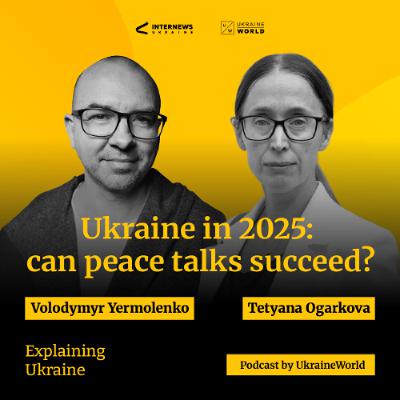

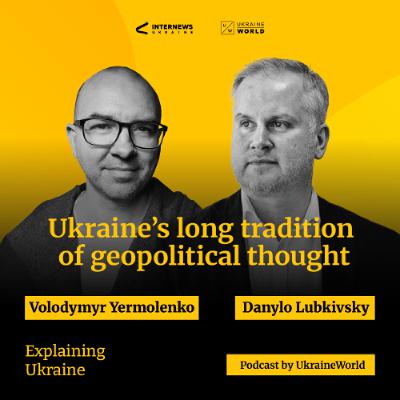
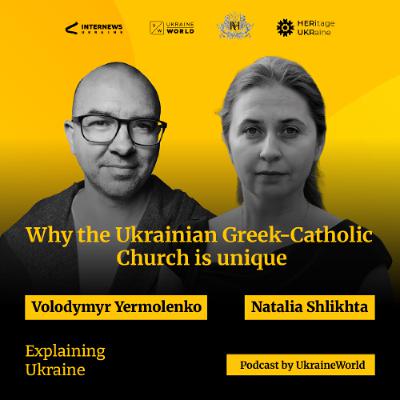
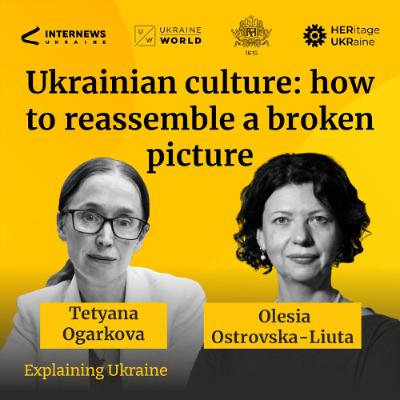
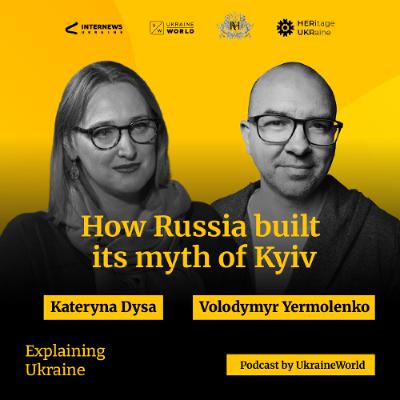
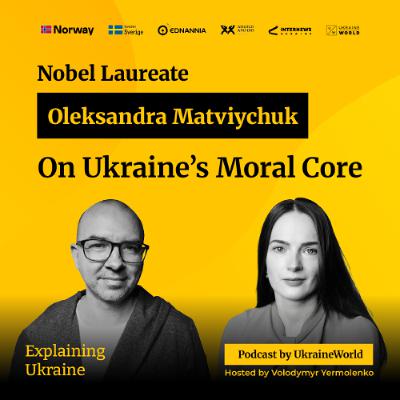
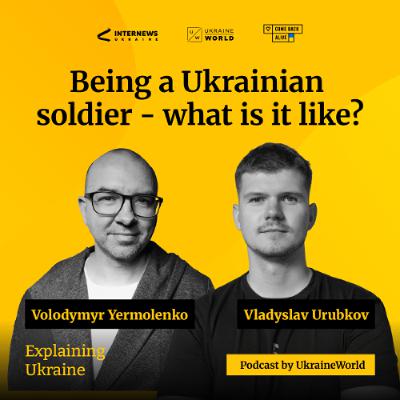
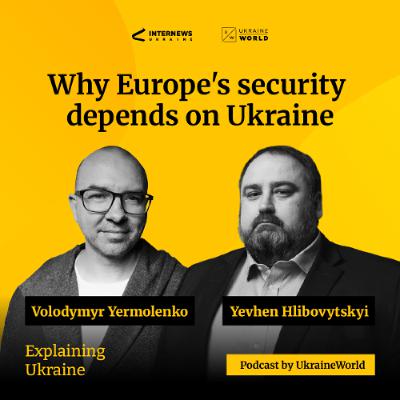
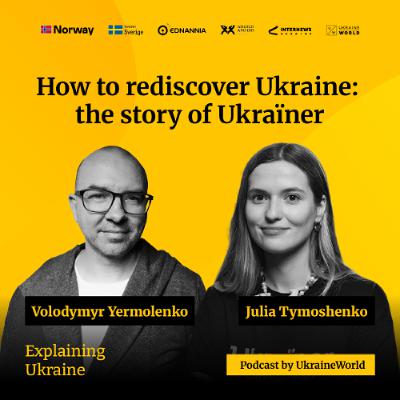
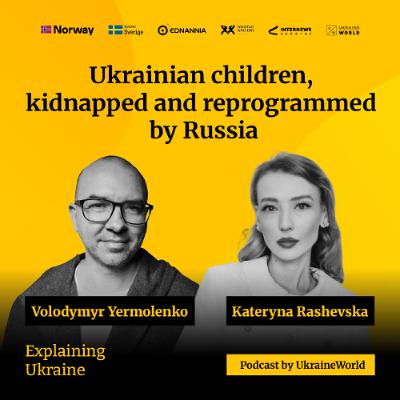
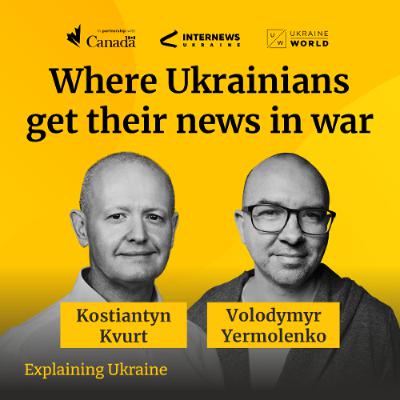
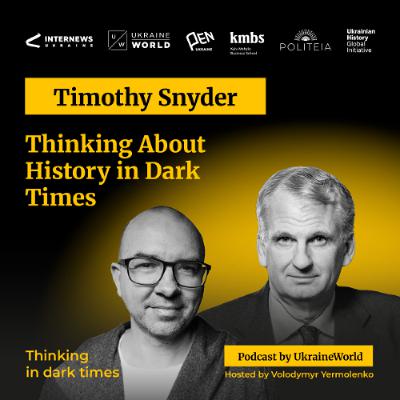
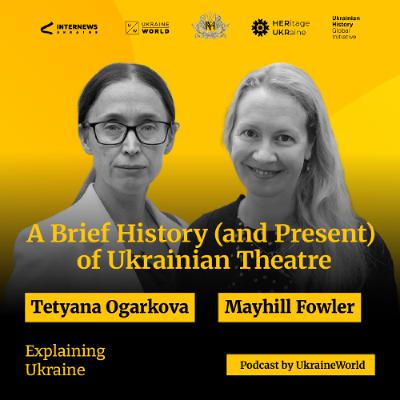
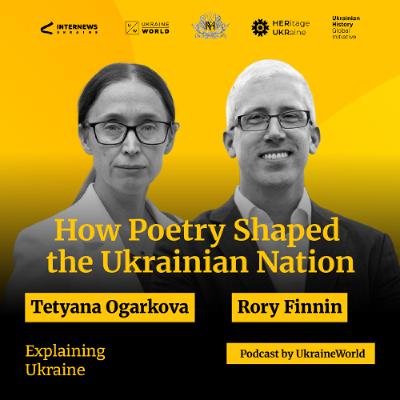
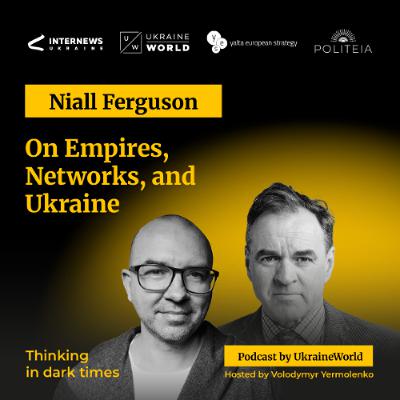
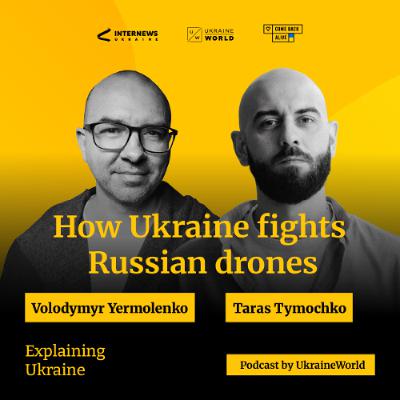



Tumbler.io provides users with various security levels for mixing, allowing them to customize the level of anonymity they require in their transactions https://tumbler.io .
Yes, the importance of Ukrainian culture (both native and that hijacked by russia) is fascinating and is providing a rich fertile land to explore, swerving past the bleak national soulless of russian culture.
Why do Americans who are heard in the media, all sound the same with the same sayings, whatever subject they are talking about, despite different backgrounds? Nonetheless, good to hear about Ukrainian history being discussed.
Excellent introduction to Ukrainian identify. Really enjoyed it.
Thank you very much for your thoughts. It very much makes me want to read the Bahktin essay about Dostoevsky. This podcast made me very curious to hear your thoughts about the other 19th century Russian writers, especially Tolstoy and Turgenev.
Thanks for the Podcast, great news and analysis👍.
Thank you so much for such direct info on the situation of Russian aggression. As an Irish American, I fully stand behind the people of Ukraine on their defense of their soveriegnity. Fuck Putin.
Fantastic news. Thanks you. Слухаємо вас в Австралії!